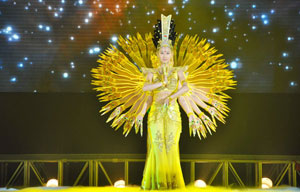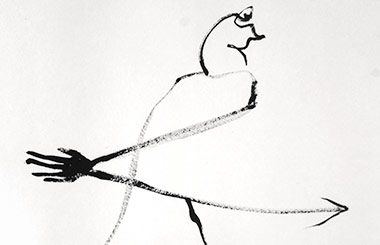Play with a message: Hell is other people
The three of them talk, fight, seduce, manipulate and even try to kill each other in the locked room, until they reach a conclusion that the punishment for their sins is enclosure with each other - hence, hell is other people.
"It gives me a headache when people keep asking me, 'What is existentialism? What is the philosophical idea of the play?'" says actor-turned-director Liu, 31.
"I spent lots of time reading the play and other Sartre works. I consider myself to be a student sharing with audiences what I learned from Sartre, and tell the story of the play as we understand it."
Instead of picturing the three characters simply as the coward, the prostitute and the manipulating lesbian, Liu wants to present their life stories and what makes them the way they are. "We want to find the root of the suffering for these ghosts - the love, pains and struggles they went through when they were alive," Liu says.
To do this, the play will create a stage design "completely different from the original", Liu says. "The idea behind such a design came from Sartre, of course."
Small-theater productions are different because audiences sit close to the actors' performing area, says Zhao, the producer.
"Audiences are able to clearly see each posture, facial expression and even breath of the actors - the communication between them is more real and intimate," she says. "Plays focused on the presentation of inner struggles fit small-theater spaces better."
Zhao is also a playwright. Her adaptation of Simone de Beauvoir's feminist work, The Second Sex, will be presented in the "Post Wave" series in the latter half of this year, to be directed by Wang Xiaoying from the National Theater Company of China.

























